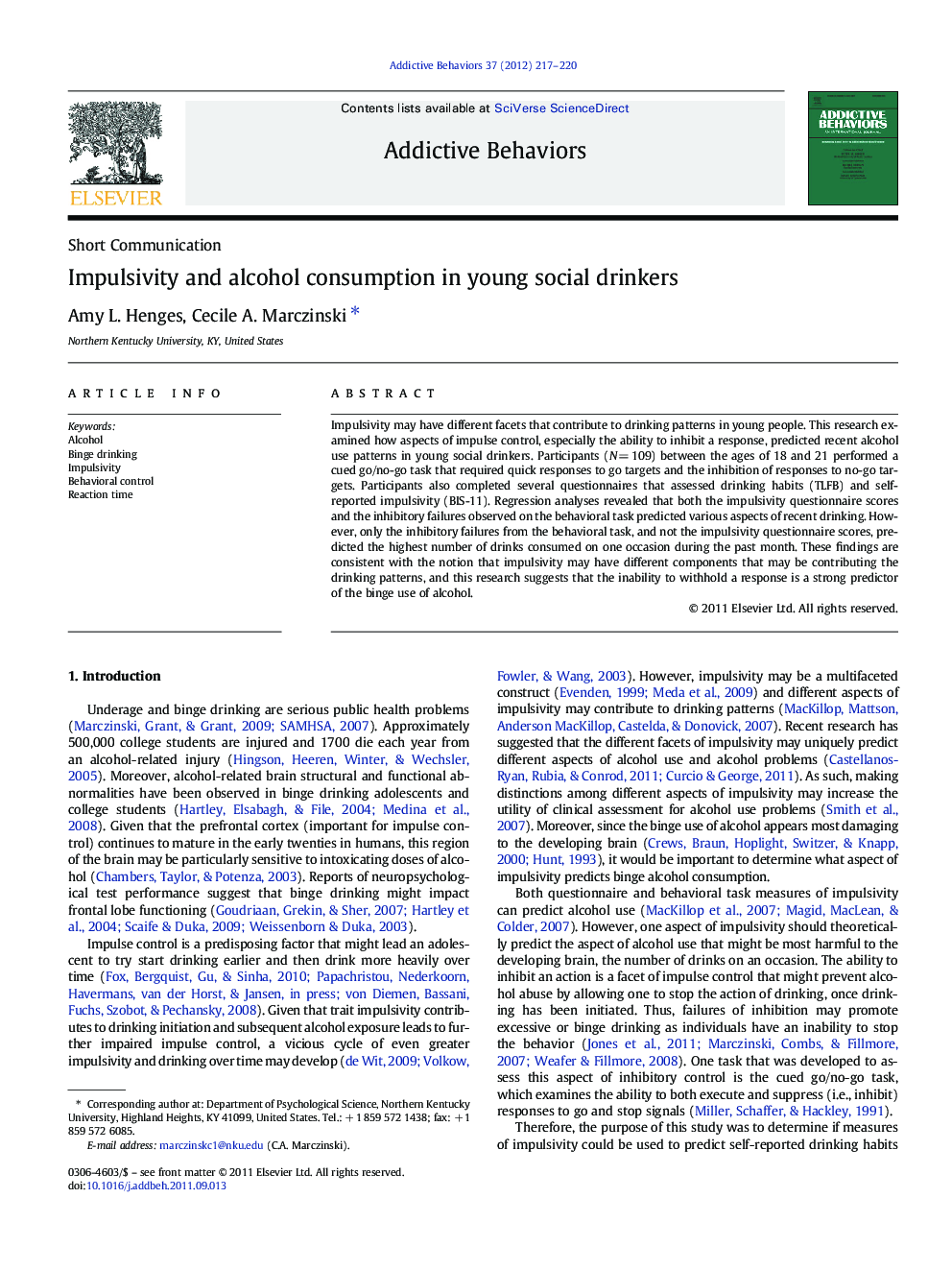| Article ID | Journal | Published Year | Pages | File Type |
|---|---|---|---|---|
| 899450 | Addictive Behaviors | 2012 | 4 Pages |
Impulsivity may have different facets that contribute to drinking patterns in young people. This research examined how aspects of impulse control, especially the ability to inhibit a response, predicted recent alcohol use patterns in young social drinkers. Participants (N = 109) between the ages of 18 and 21 performed a cued go/no-go task that required quick responses to go targets and the inhibition of responses to no-go targets. Participants also completed several questionnaires that assessed drinking habits (TLFB) and self-reported impulsivity (BIS-11). Regression analyses revealed that both the impulsivity questionnaire scores and the inhibitory failures observed on the behavioral task predicted various aspects of recent drinking. However, only the inhibitory failures from the behavioral task, and not the impulsivity questionnaire scores, predicted the highest number of drinks consumed on one occasion during the past month. These findings are consistent with the notion that impulsivity may have different components that may be contributing the drinking patterns, and this research suggests that the inability to withhold a response is a strong predictor of the binge use of alcohol.
► This research examined impulsivity and recent alcohol use patterns. ► Results revealed that impulsivity predicted self-reported alcohol consumption. ► Only inhibitory failures predicted the highest number of drinks consumed. ► Impulsivity may have different facets that contribute to drinking patterns. ► The inability to withhold a response may uniquely predict the binge use of alcohol.
